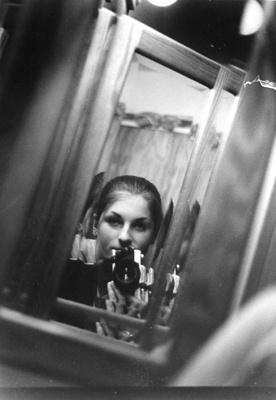All Nonfiction
- Bullying
- Books
- Academic
- Author Interviews
- Celebrity interviews
- College Articles
- College Essays
- Educator of the Year
- Heroes
- Interviews
- Memoir
- Personal Experience
- Sports
- Travel & Culture
All Opinions
- Bullying
- Current Events / Politics
- Discrimination
- Drugs / Alcohol / Smoking
- Entertainment / Celebrities
- Environment
- Love / Relationships
- Movies / Music / TV
- Pop Culture / Trends
- School / College
- Social Issues / Civics
- Spirituality / Religion
- Sports / Hobbies
All Hot Topics
- Bullying
- Community Service
- Environment
- Health
- Letters to the Editor
- Pride & Prejudice
- What Matters
- Back
Summer Guide
- Program Links
- Program Reviews
- Back
College Guide
- College Links
- College Reviews
- College Essays
- College Articles
- Back
Thicker Than a Bowl of Outmeal
As Spring Break inches closer, the chatter of diets and hitting the gym to acquire that “perfect beach bod” dominates conversations among the girls at school. In these discussions, I have learned to hold my tongue as to not offend anyone and for the sake of my own feelings.
Growing up tall and thin never bothered me. I did not notice my slender build, nor did I care about how I looked. However, that mindset began to change in high school, especially in my senior year. Going through puberty, most of my friends developed curves and filled into their awkward adolescent bodies, however my height and weight remained the same. With this noticeable difference between me and my friends, comments about my appearance began to arise.
I can vividly remember the saying that started it all: “My English teacher told us to bring in something flat and beautiful, so I brought Paige.” As the year progressed, the comments continued from a wide array of people and grew more frequent. Some remarks included, “the pencil,” “you will look like a board in that dress,” “the twiggy-division,” and, “I’m scared your arm is going to break.” Being so called “thick” was all the rage in 2016. Apropos to the thick fad, the most common joke occurring throughout this year among my friends, especially the guys, was a sarcastic statement about my “immense thickness.”
Despite how frequently they were dished out to me, the jokes did not offend me, and I found them quite humorous. I understand my friends’ intentions; the jeers were simply meant as a friendly mockery. On the contrary, the comments allowed me to realize my smaller body for the first time and, in a sense, boosted my confidence. I enjoyed when people placed their attention on me and complimented my appearance. However, after I while, I noticed that my friends tended to trivialize my insecurities. My friends never let me say that I looked bloated, need to work out, or look larger in a dress without giving me a dirty look and saying something along the lines as, “shut up, you are tiny,” or comparing me to themselves. Although the negative thoughts are not beneficial to have about oneself, they are common if not inevitable in human nature.
By minimizing the significance of my insecurities, my friends did not understand that all people have doubts and lack self-esteem at certain points. Because of their responses, I felt the need to repress any negative thoughts about my body or lack of confidence. This created an internal confusion in my mind. The comments of a smaller body did not match up with how I perceived my body. As a result, I became unsure of how I looked. I wondered if what I saw of myself in a mirror differed from how others see me. Nonetheless, I decided the confusion I experienced blocked my happiness. As a result, I recently began to open up to my friends and eliminate the body shame mentality from my mind. By being vulnerable with my friends about my feelings, I am able to talk through my insecurities and become comfortable with my appearance.
My experiences this year have taught me a valuable lesson about the contorted view of perfection engraved in people’s mind by society. Even if one conforms to all the beauty standards given by society, it is impossible to attain the ideal body. For starters, this is because most people have different definitions of perfection. Some people praise fit bodies, while others prefer curvy or thin figures. Secondly, it is physically impossible to achieve perfection because the human mind will always focus on negative aspects of oneself. Even the most extraordinarily beautiful woman, who appears perfect in the eyes of others, would still subconsciously pick out every small flaws about herself. From this experience, I have learned to focus on the positive aspects of myself and others and accepted the fact that I will never develop a perfect body. As a result, I am completely comfortable with appearance and able to lightheartedly laugh at my friends’ jokes.

Similar Articles
JOIN THE DISCUSSION
This article has 0 comments.
